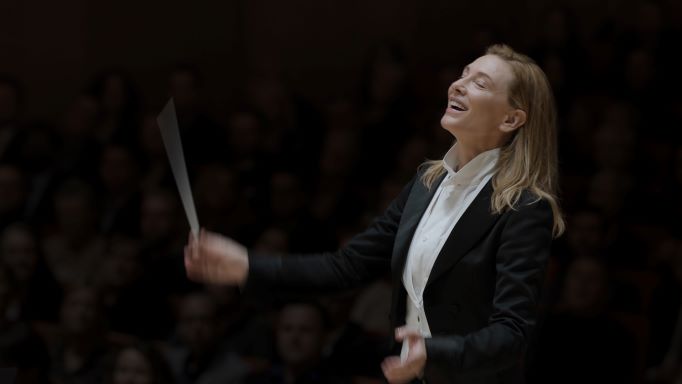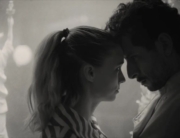Ambiguity is tricky in art. If handled lazily or obliquely, the result may end up as too contradictory. If used wisely, then such work provokes fascinating debates. In the case of a tremendously ambiguous movie like Tár, time will tell.
At this point, it’s hard to deny Cate Blanchett’s greatness as an actress and Hollywood star, who assumes here a role that marks an artist at her peak—it may be the best performance of the year. In a perfectly tailored role, the Australian actress embodies Lydia Tár as an unrestrained force of intellect and instinct in devoted service to artistic creation. She’s indeed a romantic model of genius, who governs her world with absolute control. Then when a series of situations confront her power and dignity, her façade drops. The movie starts as a character study piece and slowly becomes a psychological thriller (kind of) where the artist is no longer the author of her fate.
Lydia, a former Leonard Bernstein disciple, is lauded as one of the greatest living conductors and composers, according to the Wikipedia biography playfully displayed on screen. Her backstory is deepened by Adam Gopnik’s exposition (yes, The New Yorker writer plays himself) as he interviews her before a live audience. We learn that she is part of the exclusive EGOT winners club; the first female conductor of the Berlin Philharmonic; the author of a soon-to-be-published autobiography, Tár on Tár; and on the road to complete one of the essential projects of her life: a live concert recording of Mahler’s Fifth Symphony. She is also a self-described “U-Haul lesbian;” married to her concertmaster, Sharon Goodnow (the more contained Nina Hoss, a perfect counterpoint to Blanchett’s daunting energy); and the mother of an adopted Syrian daughter, Petra (Mila Bogojevic).
If anyone admires how far Lydia has come by the virtue of her gender or sexual orientation, she will dismiss with disdain an argument rooted in identity politics. Teaching a Julliard master class, the passionate artist tries to make a student understand why his choice not to listen or perform Bach, because the 18th-century composer was allegedly a misogynist, is simply absurd and a double-edge standard. (The student identifies as a BIPOC pansexual.) There’s no shortage of logic in Lydia’s defense about the separation between art and the artist and also the indisputable grace and brilliance contained in certain works of art.
Lydia’s lucidity and experience confronting opposition would be enough to win the classroom dialectic battle, but she becomes emotional (perhaps carrying generational prejudices too). She scares the student, who abruptly leaves the classroom. (A video recording of this confrontation, clearly manipulated to make Lydia look even worse, spreads later across social media—a minor problem compared to what’s to come.)
Most troubling at the moment for Lydia: An ex-pupil is constantly sending unwelcomed gifts and menacing messages to her, alluding to events from the past and claiming that her life has been ruined because of Lydia. Meanwhile, Lydia charges through her obligations, blinded by the self-confidence that allows her to do whatever she wants, such as dismissing old friends, favoring a new young cellist (Sophie Kauer) in her orchestra, and putting in her place a school bully who has terrorizes her child. We know Lydia already sits on top of the world, so her fall’s about to come.
On occasions, the film blurs reality, and you may suspect that the director purposely has come up with images that don’t need explanation. There’s a moment where Lydia becomes lost in a labyrinthine basement and encounters a wild dog that could represent a danger, while at night she’s kept awake by strange sounds. In another sequence, a request from an impertinent neighbor could first come across as a dream. Turns out, all these things are happening for real.
Visually and sonically, Tár is an intense experience. The director seems aware that his return, after a 16-year filmmaking gap, demanded significance, and Tár is exactly the type of work made to recover lost time. His screenplay refutes the naïve notion that talent equals moral integrity. Although in capturing the zeitgeist, Field’s film resists the temptation to take sides in the cultural wars. In any case, Lydia’s actions are clearly wrong in many instances, so in many ways she’s the instigator of her downfall.
For better or worse, any future film that tries to take on the subject of cancel culture would have to measure against the sharp coldness of Tár. Since it’s perhaps difficult to empathize with its antihero, it may only conjure emotional distance: It doesn’t seek direct compassion or justice regarding the outcome. Still, you can consider the film as a Rorschach test. It lets viewers decide for themselves what to make of Lydia Tár.

















Leave A Comment